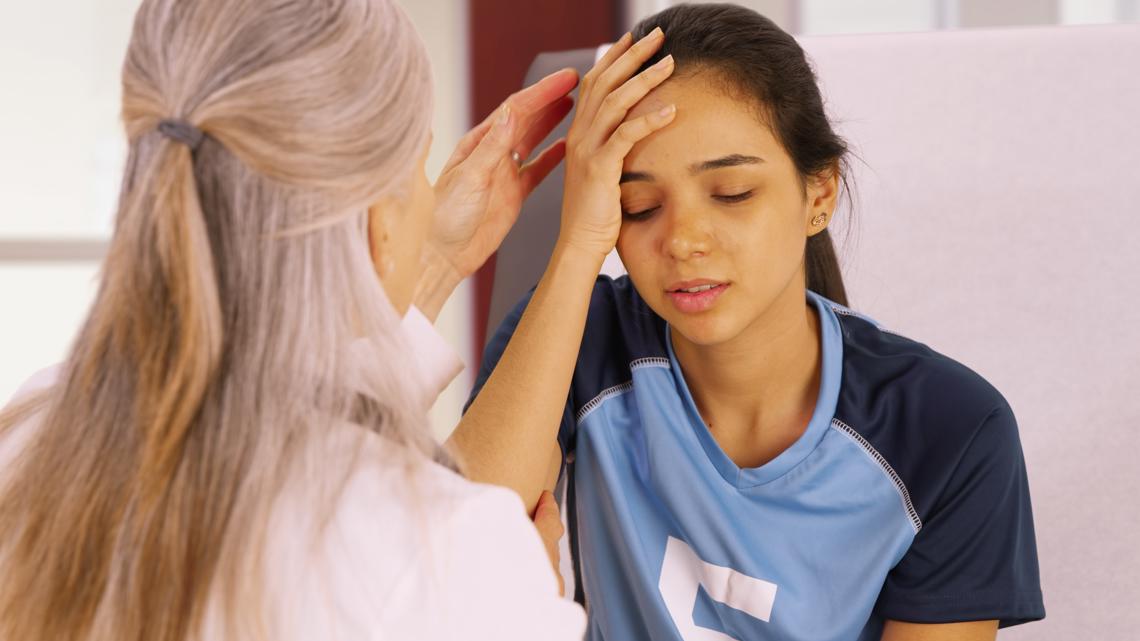
Now that school is back in session, so are sports, but that means a higher risk for injuries.
SAN ANTONIO — School sports are back in full swing across south Texas. But the return of sports often results in a growing number of injuries.
We aren’t talking about a broken leg or a sprained wrist. We’re talking about life-threatening concussions.
“A lot of times where we have coaches, parents, even other athletes will contact us and say, hey, this person is not acting the correct way, or they’re we have certain trainers too,” said Domingo Sifuentes, O’Connor High School head athletic trainer.
Northside ISD follows all UIL protocol if a student shows signs of a concussion.
“When that happens we have all these steps that we have to follow to make sure that there’s no missed progress with those athletes,” said Sifuentes.
Dr. Guy Nicolette, a sports medicine physician for UT Health San Antonio and the San Antonio Spurs also told KENS 5, “The majority seem to resolve within 7 to 14 days. The vast majority within three weeks. So it’s rare for the symptoms to last longer. But when they do that, certainly they need more thorough investigation at that point.”
3.8 million concussions happen each year in the U.S.. Nearly half go undetected and untreated. About 3 to 18 out of every 100 kids will have a concussion at some time during childhood.
The CDC says non-Hispanic White children were more likely than children of other races and Hispanic-origin groups to have ever had symptoms of a concussion or brain injury.
So, when should you get treatment? ASAP.
“For organized teams that’s a really big reason why most athletes recover quickly, you know, to the rapid assessment and starting a protocol immediately,” said Nicolette.
The CDC says watch out for these concussion symptoms: A headache or “pressure” in head. Nausea or vomiting. Balance problems or dizziness, or double or blurry vision. Feeling sluggish, hazy, foggy or groggy. And finally confusion, or concentration or memory problems.
“We’re trying to understand the domains of concussion and treat each individual patient rather than just a rubber stamp, here, go sit in a room,” said Nicolette.
For more information or to schedule an appointment, call 210-56-SPORT or visit the website here.
Original News Source
Click here for Superior HOA Management
